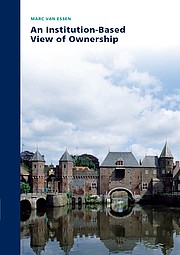An Institution-Based View of Ownership Defended on Thursday, 10 March 2011
The past two decades have witnessed an exponential growth of research on corporate governance around the world and on the role of the ownership concentration more specifically. In line with a longer tradition of ownership studies in U.S. context, most corporate governance researchers have commonly taken a classical agency theoretical view of ownership concentration. The research presented in this dissertation show that classical view of ownership seems overly crude. I provide a more fine-grained understanding about the role of ownership in different contexts; one that takes into account the subtly different formal and informal institutional that can be found around the world on the one hand, and that distinguish between the identity of concentrated owners on the other. I show, first, that a crucial factor with respect to the ownership concentration – firm strategy and performance relationships involve owner identity: i.e. who owns a firm matters significantly for that firm’s objectives, strategies, and performance. Second, I contribute to emerging institution-based view of corporate governance by expanding its empirical domain and testing empirically the interaction between formal and informal institutions.
Keywords
comparative corporate governance, ownership identity, ownership concentration, business group, family firms, IPO underpricing, institution-based view, institutional voids, labor institutions, institutional complementarity, hierarchical linear modeling, meta-analysis













